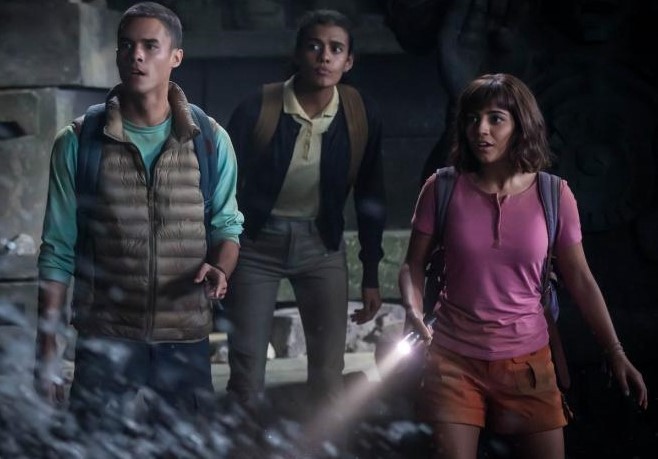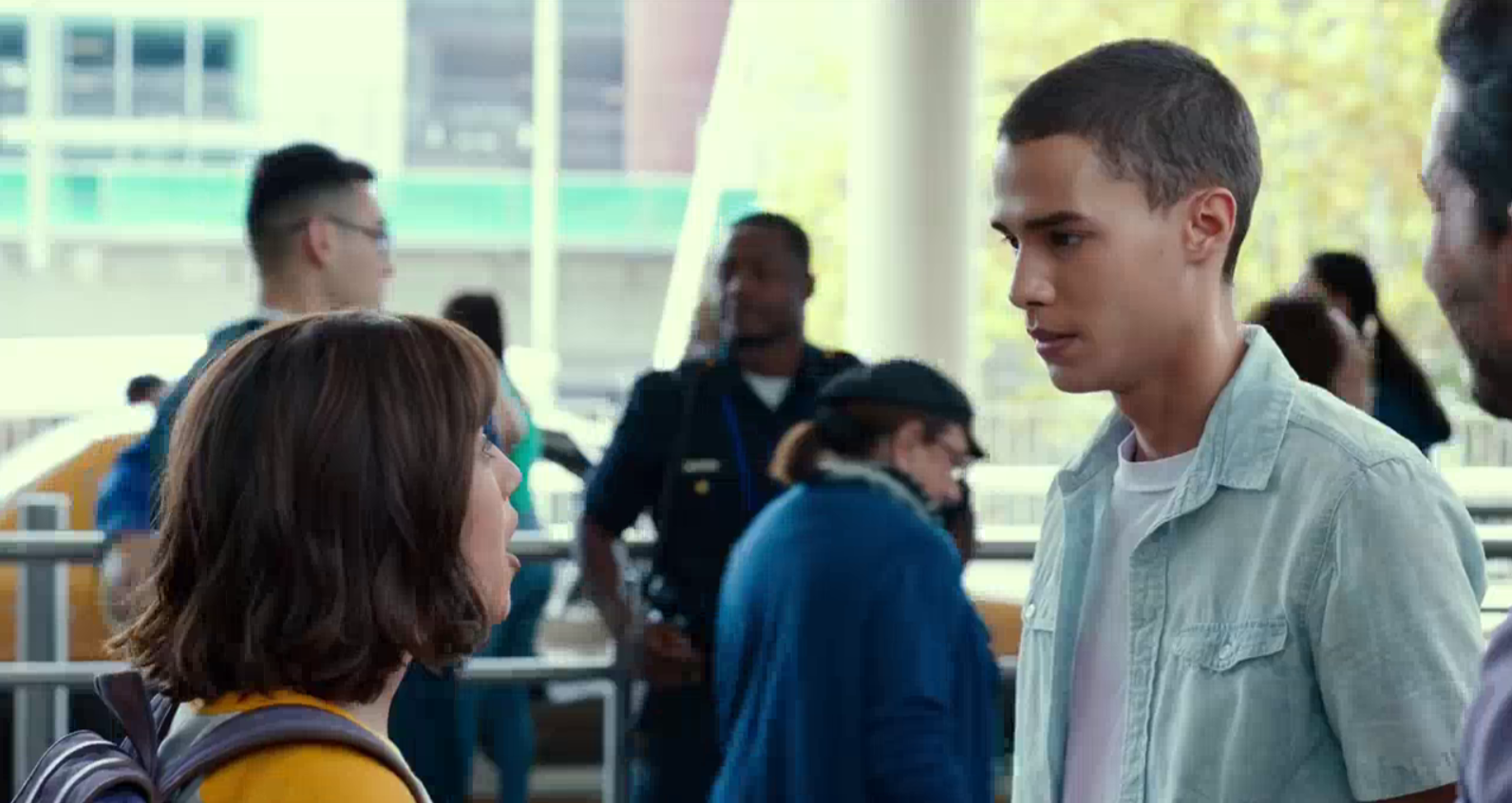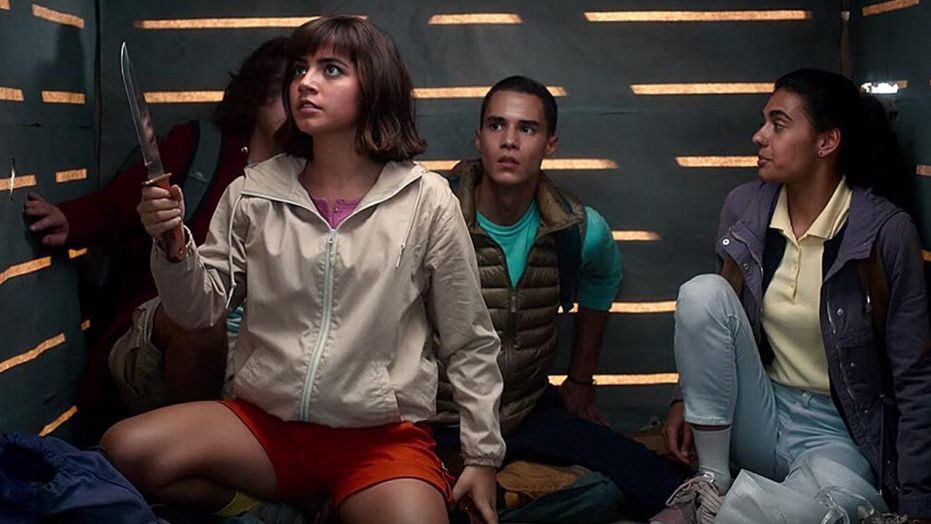Mortal Kombat: Scorpion’s Revenge Gives Fans a Gory Good Time
Ever since the mid-’90s, the Mortal Kombat game franchise has seen multiple attempts to make it on the big screen, or at least adapted into other media.
Incluvie Foundation Gala - Learn More


Dora is the superhero we didn’t know we needed. This film’s timeliness in today’s political climate is not lost on this viewer. Dora and the Lost City of Gold is based on the television show cartoon, Dora the Explorer, but is so much less obnoxious for the audience members who are over the age of four. This movie is meant for children, but also for the families who had to sit through the cartoon with their children. It winks at the absurd/annoying TV show moments, even has some scenes that are laugh-out-loud funny — usually featuring Dora’s father, played by Michael Peña.
The major plot of this film involves Dora, her cousin Diego, and their classmates Sammy and Randy looking to find Dora’s parents in Peru. The ultimate goal for all the characters (good and bad) is to find Parapata, the city of gold.

There are very few movies where Latinx characters are not gang-bangers, drug lords, or criminals. Almost all of the lead characters in Dora and the Lost City of Gold are Latinx and played by Latinx actors, including the voice actors for Boots and Swiper. In an L.A. Times interview, Eva Longoria, who plays Dora’s mother, says, “You don’t have to be Latino, but it is a celebration of our culture within the movie.” She goes on to call it organic. The diversity of the characters is not a plot point, but it is natural and necessary to the story. Dora and her family are smart, loving, safe, and likable characters taking us on an adventure that everyone can enjoy.
Dora is weird. But Dora is weird because of her lack of social skills combined with wide-eyed optimism. For teenagers, in real life or in films, these characteristics are strange in a normal public high school in America. Despite this, Dora never changes who she was — even when she was feeling sad or lonely, she did not compromise. She never assimilates, and she doesn’t need to. The othering of her character by other characters is because of her intelligence and happiness, not because she isn’t white.

“High school is a horrible nightmare.” — Diego
(SPOILER ALERT) As the film moves forward, the other teens see the virtue and likability of Dora’s personality. Dora, as the leader of the teens, cleans up the adults’ messes and saves the day. After finding an empty Parapata, her teenage team guesses: “It’s probably cleaned out by Spanish Conquistadores… or the British… or the French… or the Americans in the United Fruit Company.” Sick burn, teens — it hurts because it is true. Who knows who stole the gold (and history and culture) from this ancient city, but I guarantee it is all of the above.
The adult viewer can relate to Dora’s parents when they express their doubt in Dora’s maturity and inexperience, which is why they send her to America to be with her primo, Diego. The younger viewers can relate to the plight of being a young person in an adult world — trying to navigate high school while constantly trying to prove they know more than we think they do. It turns out that the adults are wrong, and the kids prove they are an asset.

We have teenagers like Greta Thunberg and Emma Gonzalez working to make changes in policy and culture, and Dora is another inspiration to the next generation and to the adults. Teenagers aren’t all bad — they can save us, build a better future and clean up our messes. The teen team in this film is led by two smart, unapologetic females. They aren’t emotional wrecks; they aren’t sexual objects; they don’t fall into typical female or Latinx stereotypes so often seen in film. And the male teens, while well-developed, are exposition characters, a role usually filled by women and people of color.
The teenagers in Dora and the Lost City of Gold are powerful and resourceful. They don’t follow the usual teenage tropes of being motivated by hormones or selfishness, but are just trying to survive and leave the world in a better state than they found it.
In her Washington Post review, Kristen Page-Kirby calls Dora and the Lost City of Gold boring and lacking cohesion, but I disagree. I think this story is Indiana Jones for today’s audience — action, comedy, adventure, and a brilliant lead. Dora is Indiana Jones, only better, because she doesn’t have to be cynical to be tough. Dora is a superhero for everyone.

Incluvie Score: Diverse cast, Semi-diverse producers and writers; Wonderful representation of Latinx and female characters
General Score: Perfect for its intended audience (kids); Entertaining and thought-provoking for everyone
(This article was originally published by Sarah Erskine on Medium.)
Related lists created by the same author
Ever since the mid-’90s, the Mortal Kombat game franchise has seen multiple attempts to make it on the big screen, or at least adapted into other media.